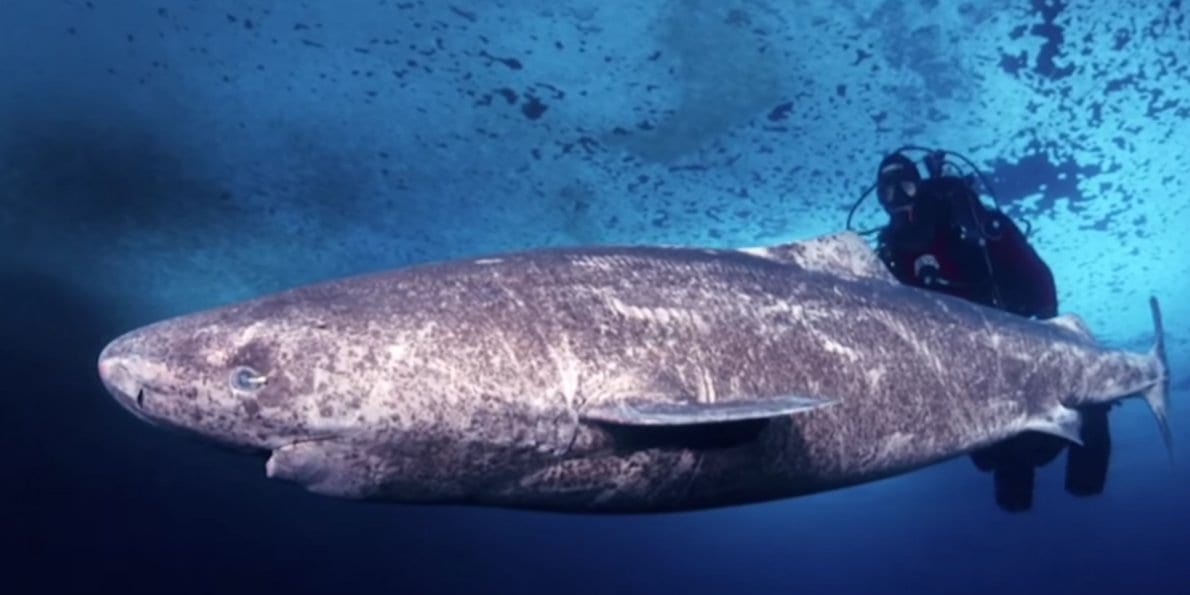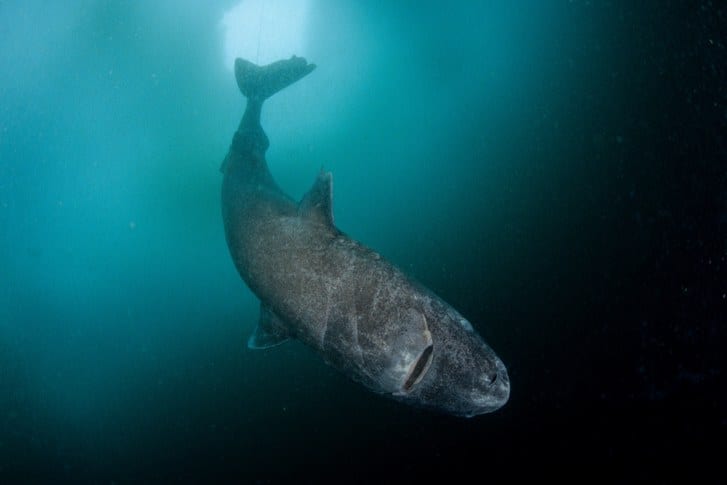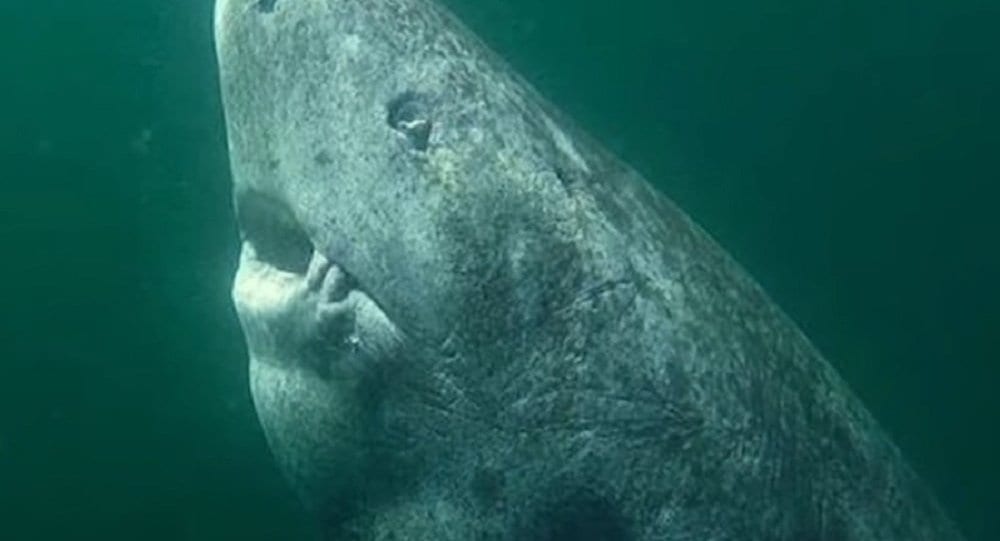At 512 years, that would make this ancient shark the oldest living vertebrate in the world.

Even though over half a millennium seems like a crazy amount of time, Greenland sharks actually tend to outlive most other animals because they are a very slow-growing species. These sharks generally reach a mature age at 150 years old, and some reports have shown that some sharks have lived for almost 400 years. This new discovery of a 512-year-old definitely breaks a record.
512 years would put the birth date of this shark at 1505, older than Shakespeare.
The discovery was detailed in a research study published in the journal Science. Marine biologist Julius Nielsen and his team used a technique to measure the amount of radiocarbon in the eye lenses of Greenland sharks, revealing the possible age of this senior animal.

“It definitely tells us that this creature is extraordinary and it should be considered among the absolute oldest animals in the world,” the biologist told.
This research suggests that Greenland sharks can live much longer than professors and scientists initially thought.
No less than 28 Greenland sharks were studied and analyzed for this research paper. The new age determination method for these sharks definitely brings some much-needed accuracy to the field, as older methods have proven to be very unreliable.

Previously, scientists used the size of the animal to determine their length. Sharks of the same ‘Somniosidae’ family, usually grow about 0.4 inches per year. While this method can give a rough estimate of a shark’s age, it’s by no means scientifically accurate, especially once a certain maturity has been reached.
“Fish biologists have tried to determine the age and longevity of Greenland sharks for decades, but without success. Given that this shark is the apex predator (king of the food chain) in Arctic waters, it is almost unbelievable that we didn’t know whether the shark lives for 20 years, or for 1,000 years,” expert Steven Campana from the University of Iceland stated.
Nielsen has been doing research on Greenland sharks for almost his entire academic career. The animals are known to eat rotting polar bear carcasses, of which the scientist shared a picture earlier. He also says that the species very frequently have to deal with pesky parasites that latch to their eyes, which is why the eyes usually don’t look that healthy.
Because these sharks tend to live hundreds of years, they usually don’t stick around in the same spot forever. Sharks from all over the world were studied, but genetic results of practically all of them were similar, suggesting they all originated from one place and then migrated. The reproduction of Greenland sharks is still somewhat of a mystery, although the scientists do know that the cold water of the Arctic is a preferred place for them stay.

In further research, scientists now want to uncover why the Greenland shark lives so much longer than other vertebrates.
They hope that they can discover more about the shark’s long-life genes and will also try to make the link with life expectancy in several different species.
“This is the longest living vertebrate on the planet,” he said. “Together with colleagues in Denmark, Greenland, USA, and China, we are currently sequencing its whole nuclear genome which will help us discover why the Greenland shark not only lives longer than other shark species but other vertebrates.”

When the research scientist was asked how in the world this shark could possibly reach the age of over 500 years old, he guessed that the cold water combined with a slow metabolism would be responsible. He does admit right after, however, that further research is still needed and that this explanation is just a theory.
“The answer likely has to do with a very slow metabolism and the cold waters that they inhabit. I’m just the messenger on this. I have no idea.”





